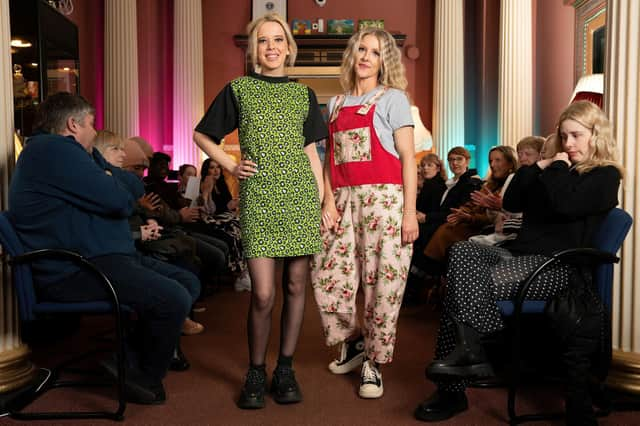Dundee charity behind unique qualification looks to turn waste material into fashion


A Dundee charity that is changing lives through a clothes-making qualification has rolled out an initiative to turn designers’ waste material into fashion.
Since its launch four years ago, 34 learners have completed the SQA-accredited Kindred Clothing qualification with an additional ten set to graduate so far this summer. Due to its success, the qualification is now attracting interest from schools, veterans and even a prison, with a dozen projects in the pipeline across the UK said to be gathering speed.
Advertisement
Hide AdAdvertisement
Hide AdThe charity’s pilot project - Evolution - involves Christie Wanless, Front Lounge’s “fashion technologist”, creating marketable products from Scottish designers’ waste material, which they can go on to sell. Wanless, a self-confessed “ambassador for slow fashion”, is already producing garments for Jo-AMI in Dundee and Orkney designer Kirsteen Stewart. To mark the project’s launch, a recent cohort of learners showcased and modelled their own sustainable collections, including lounge suits, dungarees and dresses.
The fashion learners were supported by Megan McKay of Dundee-based Little Peril Studio, who helped them define and refine their style and develop a coherent collection of garments using offcuts and waste materials.
Started by a group of young parents in Dundee, Kindred Clothing has been credited with building confidence, raising aspirations and improving mental health and wellbeing. Many of its learners have progressed to further or higher education, secured meaningful employment or returned to school after a period of reduced or non-attendance.
Wanless said: “Through our engagement with local designers, it became clear that they didn’t have many options to manage deadstock and waste fabric, so we invited them to give us our waste. Our learners then chose the fabric they wanted to work with and, with our support, created their own mini collections.
“The waste from fast fashion is shocking, and I’m determined to inspire our learners to be creative and express their design personality without having to go out and buy new fabric. For designers, Evolution presents a viable solution to deal with waste fabrics and we look forward to attracting new businesses to get involved.”
Comments
Want to join the conversation? Please or to comment on this article.